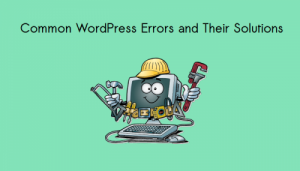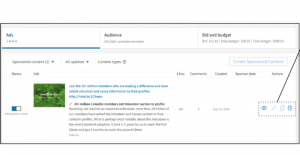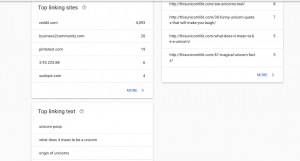It seems that the value of obtaining quality links will never disappear from SEO. However, how much value will continue to be associated with said links is frequently called into question, especially as search engine algorithms increasingly crack down on shady link-building practices. As other SEO techniques become more highly valued by Google and other search engines, the importance of both content creation and public relations within the ever-changing digital marketplace will continue to increase.
The Link Between Co-Citation and Public Relations
One alternate SEO technique that has recently been gaining more traction is co-citation. Co-citation is relatively straightforward—rather than directly linking to another site, one merely mentions it in the text as the source for information. This can be done both for other reputable online sources or for your own site/brand, and keeping sound public relations practices in mind while using this technique can yield big dividends.
While linking is still the preferred practice (at least until Google overhauls its SEO algorithms), Content Marketing Institute recommends implementing co-citation when linking is not necessarily a desired option. For example, content marketers and public relations professionals attempting to become involved on behalf of a client on social media or in forum discussions are typically going to be much better off mentioning their brand by name, rather than trying to submit a link. Many PR professionals have learned the hard way that submitting links into forum discussions can quickly cause their account to be blocked entirely. However, any co-citations done in forums and discussion sites should avoid being spammy (which you can still be even without a link).
Co-citation can also be used in one’s owned media content or in guest blog posts as a way of building positive relationships with other sites to improve one’s own search rankings. For example, if one cites another authoritative article within their own blog post, reaching out to the author of the cited piece can easily generate new links as that author shares the content containing the co-citation.
Marketing expert Neil Patel suggests sending a simple message that informs an individual that you mentioned or linked to their piece in a content post, though with the caveat that it is better to have some sort of relationship already established with that person before reaching out with said message.
Thankfully, the digital landscape has made building these relationships much easier than in the past. Twitter, Facebook, and other social media channels have made it easier than ever before to reach out to and follow industry leaders. Starting conversations with these leaders by responding to their pieces with your own insights and sharing their content will make it more likely that they’ll return the favor when you reach out to them because of a link or citation you included in one of your articles.
Those retweets and shares are of vital importance because they expose your article to new audiences that trust the influencer sharing the content. The increased reach that can be generated by those public relations efforts can ultimately yield great dividends as more people discover your content, recognize its value, and keep coming back for more.
Content is Still King
Of course, if one is trying to increase the number of links and co-citations coming from other sources to their own site, he or she needs to ensure that their own content is worth linking to in the first place. Without quality content that is updated regularly, it’s hard to become much of an authority on any topic, much less in the competitive field of digital marketing.
One recommendation is to focus on four key types of content—informative blog posts, infographics, videos and even podcasts—which can deliver unique value to customers and industry leaders alike. When implemented properly, this content can both boost organic traffic to one’s site and increase generation of backlinks and co-citations as others share the quality materials through their own channels.
When it comes to creating quality content, it doesn’t do much good to simply regurgitate a piece that someone else wrote. With so much information being produced on a daily basis, it’s important to stand out from the crowded field of content that is flooding the Web, and that requires providing something new to digital audiences. Most often, this occurs as you provide your own insights on current industry trends or news in blog posts or podcasts, or even when original research is conducted to generate news of your own accord.
Repackaging other information can also be effective, as long as it is done properly. For example, infographics and videos frequently make use of research findings from across the Web, and then package that information into a concise, visually engaging piece of content that is more easily consumed by digital audiences. Even when the information being presented isn’t necessarily earth-shattering, compiling it in a unique visual format can generate shares and links from others.
As a site continues to expand its content offerings, Web traffic, as well as the number and quality of backlinks should grow when the aforementioned public relations practices are used to promote it a large digital audience. Google rewards sites that produce consistently authoritative content with higher search rankings, helping draw even more traffic to the site, and many speculate that before long, the consistent production of quality content will outweigh inbound links in importance for SEO.
Conclusion
While both digital public relations and content creation are currently focused on generating quality links to boost a site’s search rankings, the increased prevalence of co-citation and Google’s ever-adapting search algorithms indicate that quality, authoritative content will become more and more important in the years to come—content that will be bolstered by one’s own focus on research and writing, as well as the relationships built with other industry leaders.
(188)
Report Post





